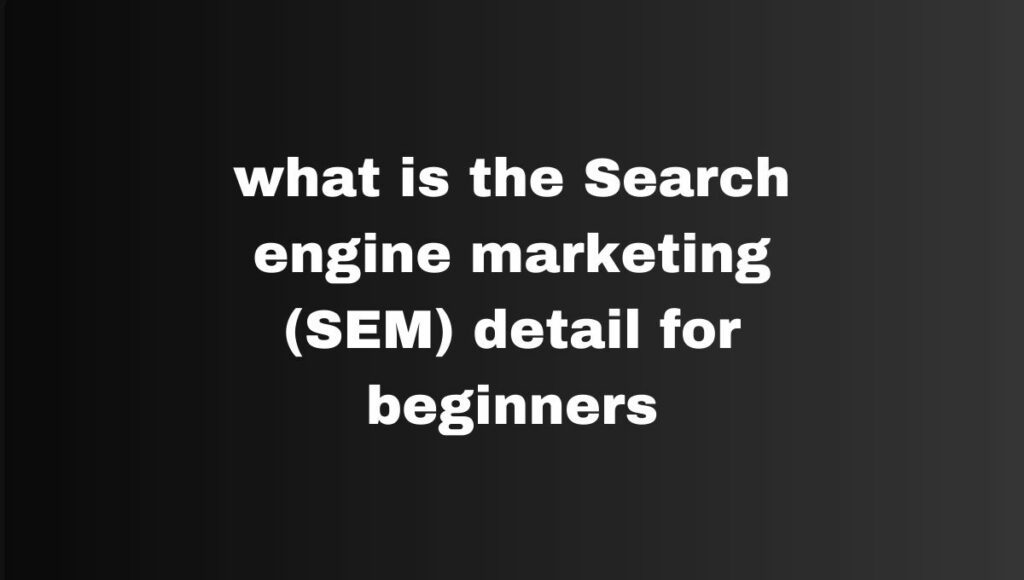what is the search engine marketing
Digital marketing is now a crucial component of any company’s marketing plan in the modern era. Search engine marketing (SEM), one of the numerous strategies employed in digital marketing, is a very efficient approach to boost brand awareness and generate visitors to your website. We’ll go through search engine marketing’s definition, advantages, and workings in this blog.
Search Engine Marketing (SEM) – what is it?
In search engine marketing (SEM), paid advertising and search engine optimisation (SEO) strategies are used to promote a website by making it more visible in search engine results pages (SERPs). SEM’s goals are to boost website traffic, raise brand recognition, and encourage conversions.
Search Engine Marketing’s Advantages:
The following are some advantages of using SEM into your digital marketing strategy:
- Greater Visibility: SEM will place your website at the top of search engine results pages, increasing its visibility to prospective buyers.
- Targeted Audience: Using SEM, you may choose to target particular audiences according to their location, device, interests, and other characteristics.
- SEM may be cost-effective since you only pay when someone clicks on your advertisement.
- Measurable Results: SEM offers quantifiable outcomes that let you monitor your ROI and fine-tune your campaigns for increased effectiveness.

The Operation of Search Engine Marketing:
Paid search advertising and search engine optimisation are the two main SEM strategies.
- Paid search advertising: Based on the keywords you bid on, paid search advertising entails developing advertisements that show up at the top of the search engine results page. Users that enter such terms in a search engine see the advertising, and you only pay when someone clicks on your ad. Google Ads, Bing Ads, and Yahoo Gemini are a few of the well-known paid search advertising networks.
- SEO entails making adjustments to your website to raise its position in natural search results. This entails both off-page optimisation, such as constructing high-quality backlinks to your website, and on-page optimisation, such as optimising your website’s content and structure.
Search Engine Marketing Best Practises:
When using SEM, bear the following best practises in mind:
- Conduct rigorous keyword research to find the relevant search terms that potential clients are using to find goods and services that are comparable to yours.
- Make a Strong Call to Action in Your Ad content: Write a strong call to action in your ad content that is pertinent to your target audience.
- Make sure your landing pages are optimised for conversions by include clear calls-to-action and pertinent information.
- Monitoring and Analysing Performance: To see possibilities for improvement, keep a close eye on your SEM campaigns’ performance indicators including click-through rate (CTR), conversion rate, and cost per click (CPC).
To sum up, search engine marketing is a potent instrument for boosting website traffic and brand recognition. Businesses may increase their search engine ranks and deliver targeted traffic to their websites by utilising paid search advertising and search engine optimisation. However, it’s crucial to adhere to recommended practises and periodically assess campaign success to get the greatest outcomes.











